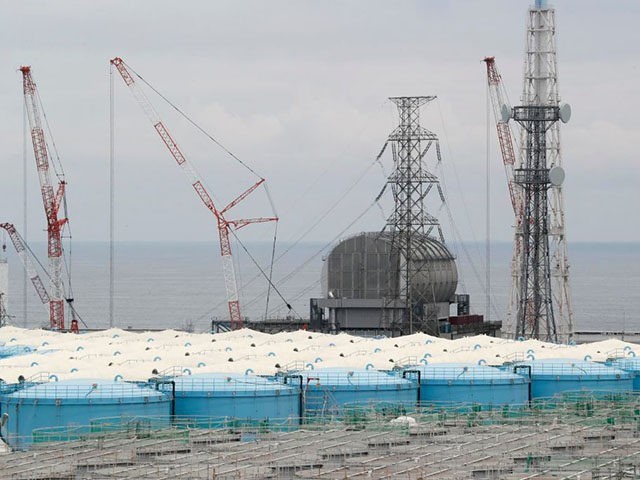Japan announced on Wednesday it has shut down all but one of its nine nuclear reactors for at least the next six weeks to comply with safety regulations requiring anti-terror protections for all of its nuclear facilities.
“Kansai Electric Power Co. shut down the No. 4 reactor at its Oi nuclear plant in Fukui Prefecture, western Japan, for regular maintenance on November 3,” the Asahi Shimbun reported on Wednesday, adding that this means Japan will now “have to limp by on just one nuclear reactor for the next six weeks.”
The shutdown has left the “No. 4 reactor of Kyushu Electric Power Co.’s Genkai nuclear power plant in Genkai, Saga Prefecture” as the only nuclear reactor currently operating in Japan. The Genkai plant usually operates two reactors, but its No. 3 reactor is currently undergoing routine inspections.
“Electric power companies are required to construct an anti-terrorism facility at their nuclear power plants under stringent new safety regulations imposed after the triple meltdown at the Fukushima plant [in 2011],” the newspaper noted.
Kansai Electric failed to meet the deadline for building anti-terror protections at its Takahama nuclear power plant in Takahama, Fukui Prefecture, “forcing it to take its No. 3 and No. 4 reactors offline.”
According to the report, “Kyushu Electric’s Sendai nuclear power plant’s No. 1 and No. 2 reactors in Satsuma-Sendai, Kagoshima Prefecture, were also suspended after construction of an anti-terrorism facility fell behind schedule.”
Kansai Electric plans to finish construction of an anti-terror facility at its Takahama nuclear power plant by December 22, at which time it says it will restart the No. 3 reactor.
Japan ordered all of its nuclear power plants to shut down following the 2011 meltdown of the Fukushima No. 1 nuclear power plant in Fukushima Prefecture, triggered by an earthquake and tsunami disaster in the surrounding area. The nation has slowly allowed a handful of nuclear power plants to reopen since then. The Kansai, Shikoku, and Kyushu electric power utility companies have restarted operations of nine reactors in five nuclear power plants across Japan.
“This is the first time since May 2017 that all nuclear reactors operated by Kansai Electric remain suspended,” the Asahi Shimbun noted on Wednesday.
Water used to cool molten nuclear fuel at the Fukushima nuclear power plant during the 2011 meltdown has been stored in tanks on the facility’s premises since then. Japanese media reported in mid-October that Tokyo was moving forward with plans to release the contaminated water at Fukushima’s power plant into the Pacific Ocean. The Japanese government reportedly made the decision after running out of above-ground storage containers for the contaminated water and failing to agree on alternative options for its disposal.

COMMENTS
Please let us know if you're having issues with commenting.